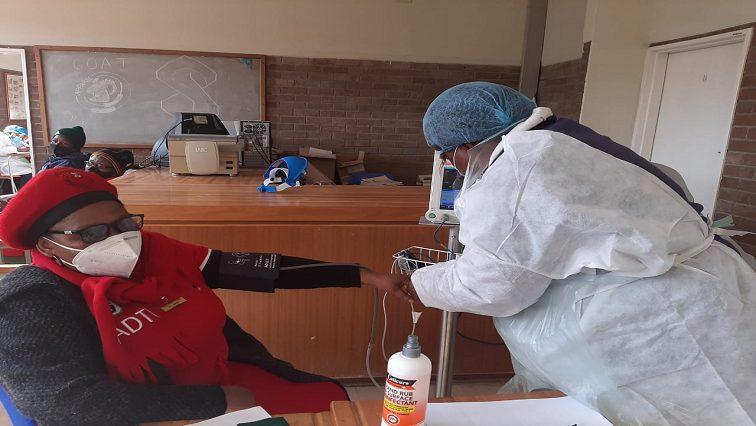The National Executive Committee (NEC) of the South African Democratic Teachers’ Union (Sadtu) said it will engage government and the Minister of Science, Higher Education &Training, Dr Blade Nzimande, to address the vaccination of the entire schooling sector.
Sadtu called for vaccination to be spread to as many people as possible including educators in the Early Childhood Development, Community Education & Training (CET) and Technical & Vocational Education and Training (TVET) sectors.
“While the NEC appreciates the progress the department of basic education vaccination programme has had, it cannot fully rejoice the vaccination programme when thousands of educators are not part of the programme.
“Vaccination needs to be spread to as many people as possible to mitigate the devastating effects of this pandemic to save lives and livelihoods,” said Sadtu General Secretary Mugwena Maluleke.
The Sadtu meeting took place a few days after the country was placed under adjusted level 4. According to the Sadtu statement, the union met to “deliberate on organisational, educational, labour, socio-economic, political and international matters”.
The meeting was also on the eve of the early closure of schools for the winter break due to the escalating numbers of Covid-19 infections across the country.
Maluleke said the union will continue to fight vaccine nationalism. He said Sadtu will put pressure on government to look at getting the vaccine from Russia and Cuba following due processes led by science.
The general secretary said the Sadtu NEC also criticised the bureaucracy surrounding the distribution of vaccines across the country. He said the bureaucracy is the reason for the slow vaccination process.
“No one is safe until everyone is vaccinated,” said Maluleke.
He said the NEC also made calls for South Africa to invest in its own vaccine production capacity so that it can assist other African states as well.
“The South African government has led the charge jointly with India at the global stage for moving the whole world towards a TRIPS waiver for vaccine related Intellectual Property.
“Sadtu has been one of those loud voices consistently in support of the Copyright Amendment Bill which its importance was put to the fore by the discourse on the vaccine production related Intellectual Property,” said Maluleke.
He said the NEC also called on South Africa to invest in its own vaccine production capacity so that it can assist other African states.
According to the African Development Bank, Africa produces less than 1% of its vaccines. This is especially worrying because the continent’s economic recovery is conditional on access to vaccines.
Earlier this year, President Cyril Ramaphosa spoke out against vaccine nationalism by rich countries. He led calls for the waiver of intellectual rights for vaccines.
South Africa and India submitted proposals to the World Trade Organisation for a temporary waiver of certain aspects of intellectual property rights to ensure wider access to technologies to produce vaccines and medicines.
Last month, the World Health Organisation (WHO) announced that it was setting up a hub to share mRNA technology to produce the jab in Africa. The organisation said South Africa will establish the continent’s first Covid mRNA vaccine technology transfer hub.
Ramaphosa said the production of the mRNA vaccine in South Africa would help overcome the inequality in vaccine distribution on the continent, which is still struggling with severe shortages while developed countries hoard surpluses.
To help with the progress of vaccination, Sadtu suggested that schools – normally closer to communities – should be used as vaccination sites.
He said this can work well because schools were used when educators and staff in the education sector were vaccinated.
“And this happened with no hitches in the programme,” he said.
Maluleke said the untold damage caused by the coronavirus pandemic, not only to education but to the economy as well, is significant.
“The first 12 months of the various lockdown levels saw the loss of approximately 2.2 million jobs. The pandemic further exposed the disparities in our education system,” said Maluleke.
He added that this is why the Sadtu NEC has resolved to convene an education summit to chart the way forward for education during and post the pandemic.
“The summit will look at the disparities in the system, the new curriculum which will include robotics and the use of blended technology in education and their impact in the economy,” he said.
- Inside Politics



